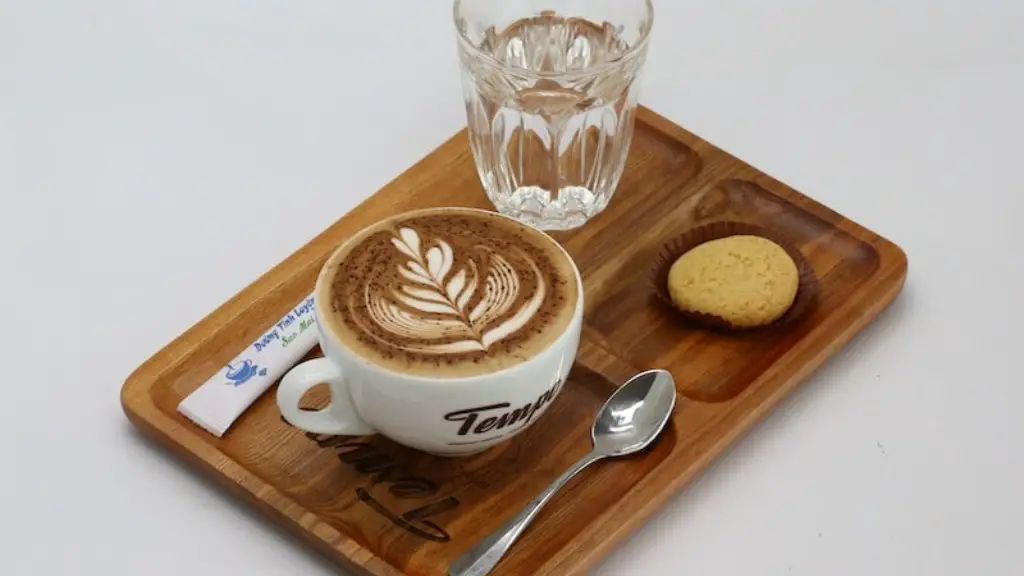It’s no secret that many of us reach for a cup of coffee to get us through late-night study sessions or long days at work. But can drinking a cup of coffee have an effect on skin conditions, such as acne? While the research results seem to point in different directions, there are some studies that suggest that drinking black coffee could reduce the severity of breakouts. In this article, we will explore the connection between black coffee and acne, its potential benefits and drawbacks, and offer advice on how to get the most out of your cup of joe.
In a study conducted by the American Journal of Clinical Nutrition, participants consumed 8 ounces of either black coffee or a non-caffeinated drink every day for 4 weeks. After the study period was over, the researchers found that the participants who drank black coffee had a reduced level of lesion counts – such as redness and inflammation – when compared to the group that didn’t. That being said, the study participants were already quite young, and it’s unclear if the same results would show in an older population.
Several other studies have also looked into the potential benefits of black coffee and acne. In one study, participants were randomly assigned to either consume black coffee or drink a placebo for 2 months. At the end of the trial, the researchers found that there was a significant decrease in the degree of acne among the black coffee drinkers. However, similar to the American Journal of Clinical Nutrition study, this study used participants aged 18-25, so it’s unclear how well the results would translate to older individuals.
Caffeine, which is found in black coffee, has been found to reduce inflammation and redness. Studies have also found that when applied topically, caffeine can reduce the size of individual pimples. Experts speculate that drinking black coffee can provide these same benefits for mild to moderate acne.
That being said, there are some potential drawbacks to drinking black coffee if you have acne. Caffeine can act as a diuretic and cause dehydration, which can exacerbate acne. Additionally, coffee is acidic, so it may have a drying effect on your skin. Finally, caffeine consumption has been linked to anxiety and stress, which can also aggravate acne.
If you do choose to drink black coffee for your acne, it’s important to drink it in moderation. It’s recommended that you limit your daily caffeine intake to around 400 milligrams – that’s roughly 4-5 cups of black coffee per day. Additionally, make sure to stay hydrated and reduce stress levels as much as possible.
Overall, while some studies suggest that drinking black coffee may help to reduce the severity of breakouts, more research is needed in order to confirm these results. If you’re considering drinking black coffee for the health of your skin, it’s important to talk to your doctor first. Your doctor may be able to provide additional advice on the best way to care for your skin.
Effects of Caffeine on Acne
Caffeine, one of the main active ingredients in black coffee, can have both positive and negative impacts on acne. Studies have found that when applied topically, caffeine can reduce the size of individual pimples. Additionally, caffeine has anti-inflammatory properties, which can help reduce redness, inflammation, and irritation associated with acne. However, it’s important to note that caffeine can also increase cortisol levels and stress, which in turn can aggravate acne.
Side Effects of Drinking Black Coffee
As with any food or beverage, there are potential side effects to consider when drinking black coffee. Caffeine can act as a diuretic, which can lead to dehydration – and dehydration can worsen acne. Additionally, coffee is acid, which can make it harder for your skin to retain moisture. Finally, drinking too much caffeine can cause jitters, restlessness, and headaches, all of which may exacerbate acne.
Drinking Black Coffee in Moderation
If you’re considering trying out black coffee for your acne, it’s important to have realistic expectations and to drink it in moderation. It’s recommended that you limit your daily caffeine intake to 400 milligrams per day – that’s roughly 4-5 cups of black coffee. Additionally, it’s important to stay hydrated and to practice stress management techniques to help keep your skin looking its best.
Alternative Therapy for Acne
In addition to drinking black coffee, there are several other holistic approaches that may help reduce acne. Eating an antioxidant-rich diet is one way to reduce inflammation and help your skin stay healthy. Additionally, herbs such as burdock root and celery seed can reduce sebum production, while essential oils such as tea tree oil and lavender are known to reduce redness and irritation. Finally, consuming probiotics can help boost your gut health, which in turn can help improve skin health.


